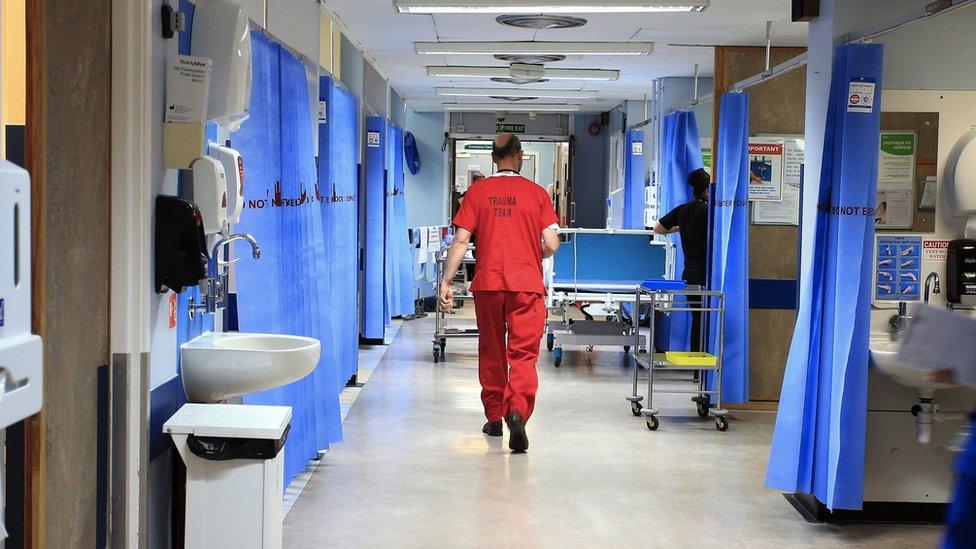'Doing my cancer treatments alone was scary'
- Published
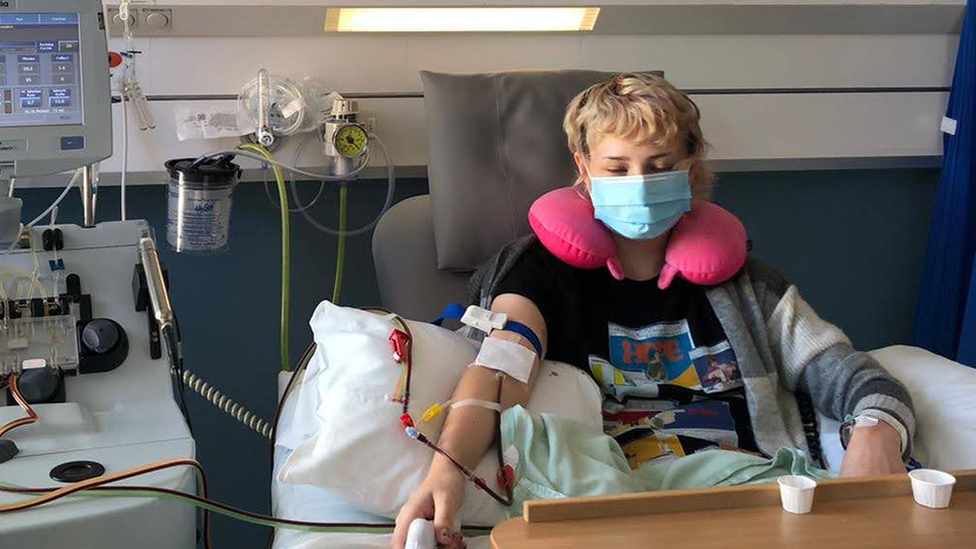
Miss Forrester said she hoped her story inspired others to support the #Hand2Hold campaign
A campaign has started to prevent children and young people receiving cancer treatment alone in the pandemic.
Charities behind the #Hand2Hold campaign want to enable all young people aged 16 to 25 to be allowed a chaperone, instead of only some.
Mikaela Forrester, 18, from Somerset had some of her cancer treatments alone and said she did not want other young people to have that experience.
She said without her mother she found it "scary" and "lonely".
Miss Forrester lives in Frome and was diagnosed in July 2019 with Stage 2 Hodgkin Lymphoma, an uncommon cancer that develops in the lymphatic system.
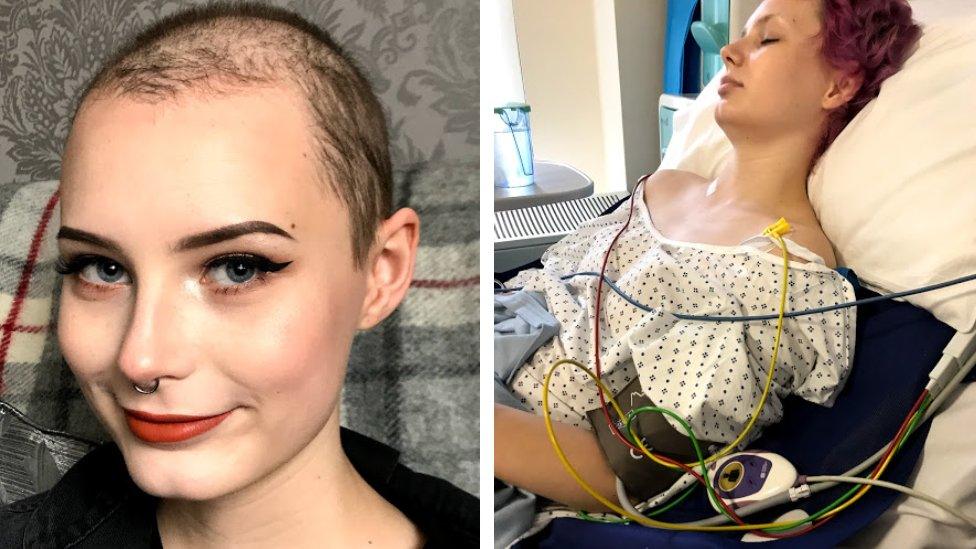
Miss Forrester said: "I remember how scared I was for my first chemo and I had my mum and dad there so I don’t want people to go through that alone"
In March 2020 she was told she had relapsed and would need to undergo a further round of chemotherapy, radiotherapy, and a stem cell transplant.
Because of the coronavirus pandemic, she was told she had to have those treatments on her own, without immediate support from her family or friends.
She said: "When I had my transplant and my cells harvested with three weeks in hospital, with no visitors, it was just so scary.
"It was quite lonely.
"Even if I could hug my parents, or if they could stand two metres away with a mask on, just knowing they were there during the most difficult times would have made me feel comfortable because it was so overwhelming."
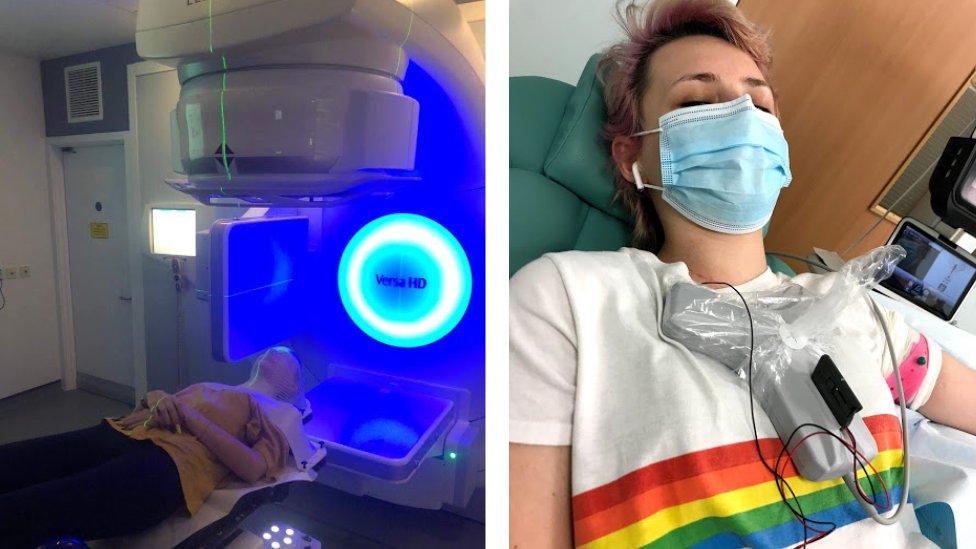
Miss Forrester said: "It would have been nice to have my mum there to listen to the doctors for me"
The campaign is being led by Teenage Cancer Trust and children's cancer charity CLIC Sargent.
Both charities have sent open letters to UK health minsters urging them to change the current pandemic policies for young cancer patients.
It was after they discovered an inconsistent approach being applied among hospitals in England allowing relatives or friends to accompany young people to their appointments.
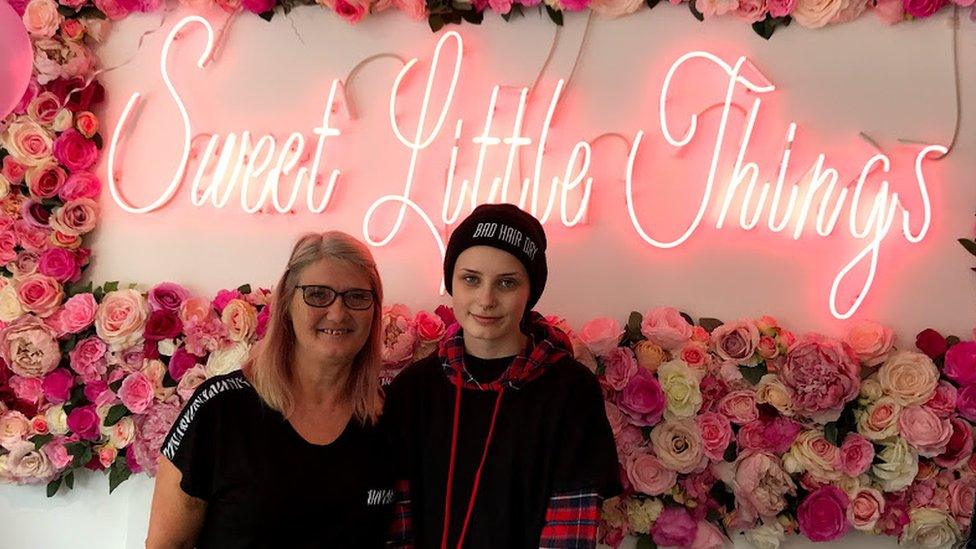
Miss Forrester said: "It would have made a huge difference if I could hug my parents"
Their research suggested 90% of 100 respondents aged between 16-25 said they had not been allowed a chaperone during the Covid-19 outbreak.
Chief nurse at Teenage Cancer Trust Dr Louise Soanes said the charity understood extra precautions had to be taken to protect people from coronavirus, but asked for some compassion too.
"Having cancer treatment, receiving a diagnosis or learning or hearing how you're responding to treatment, can be for many a scary and isolating experience.
"We want to dispel the disparity so all young people, where safe and possible, have that crucial loved one with them and a hand to hold, particularly during some of the most difficult times of their life," she said.
Related topics
- Published10 February 2021
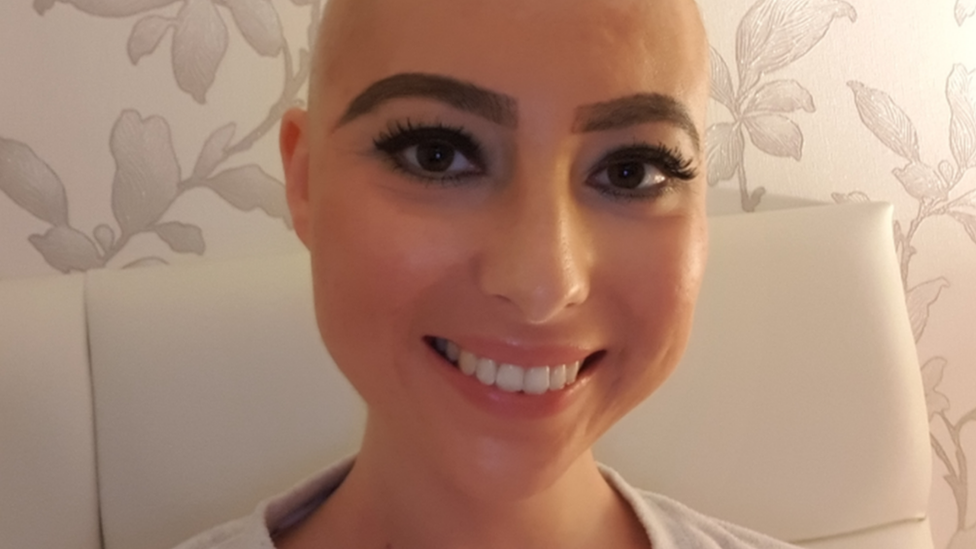
- Published30 November 2020
